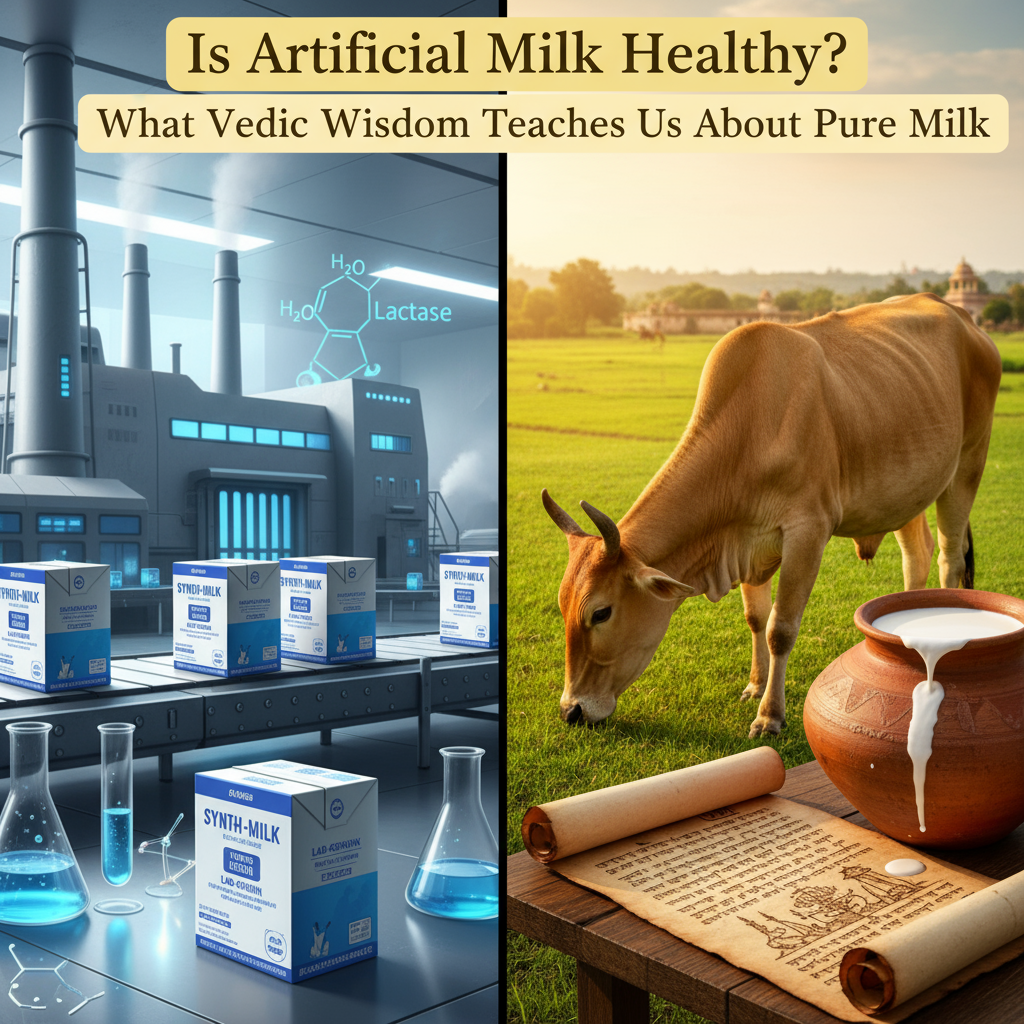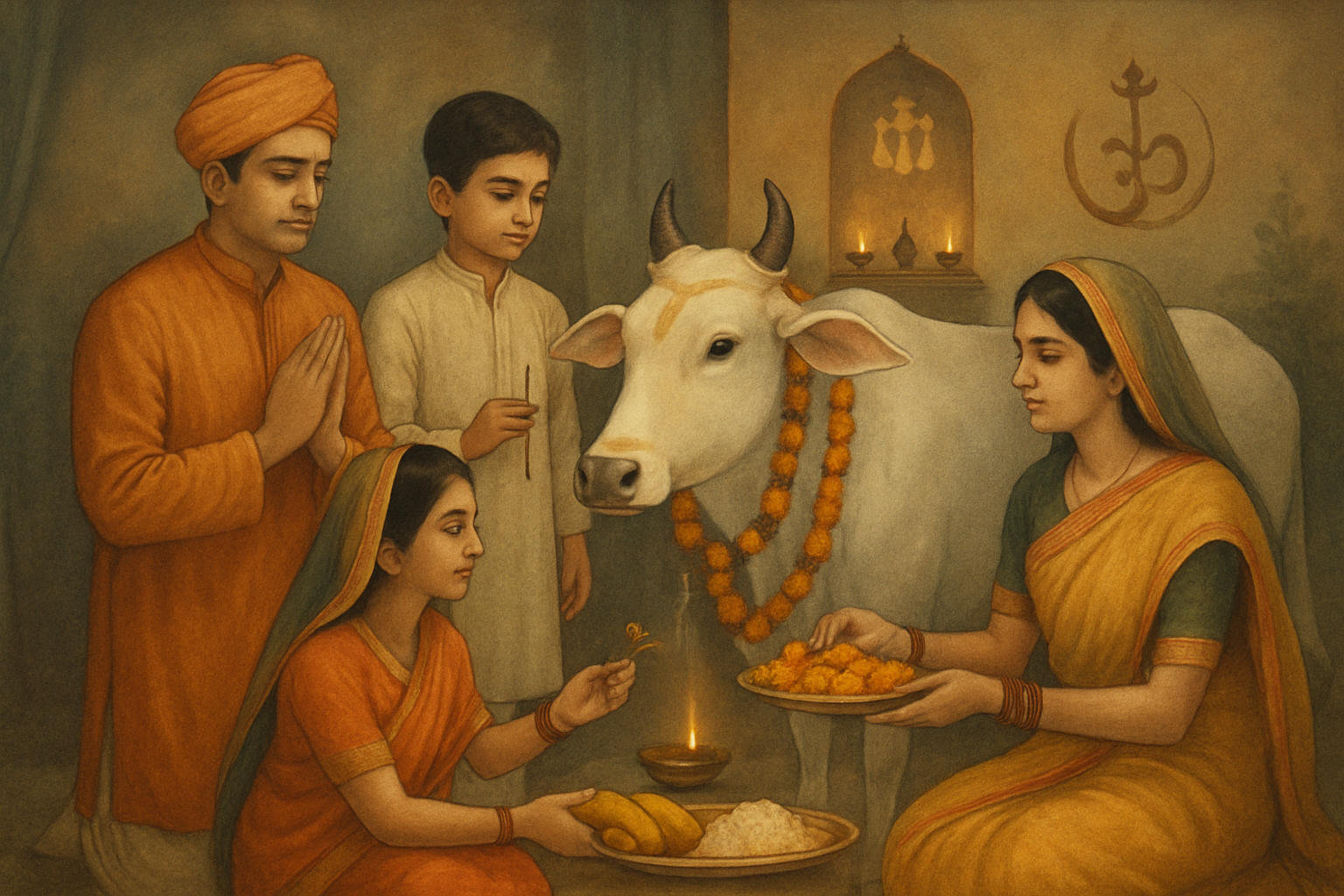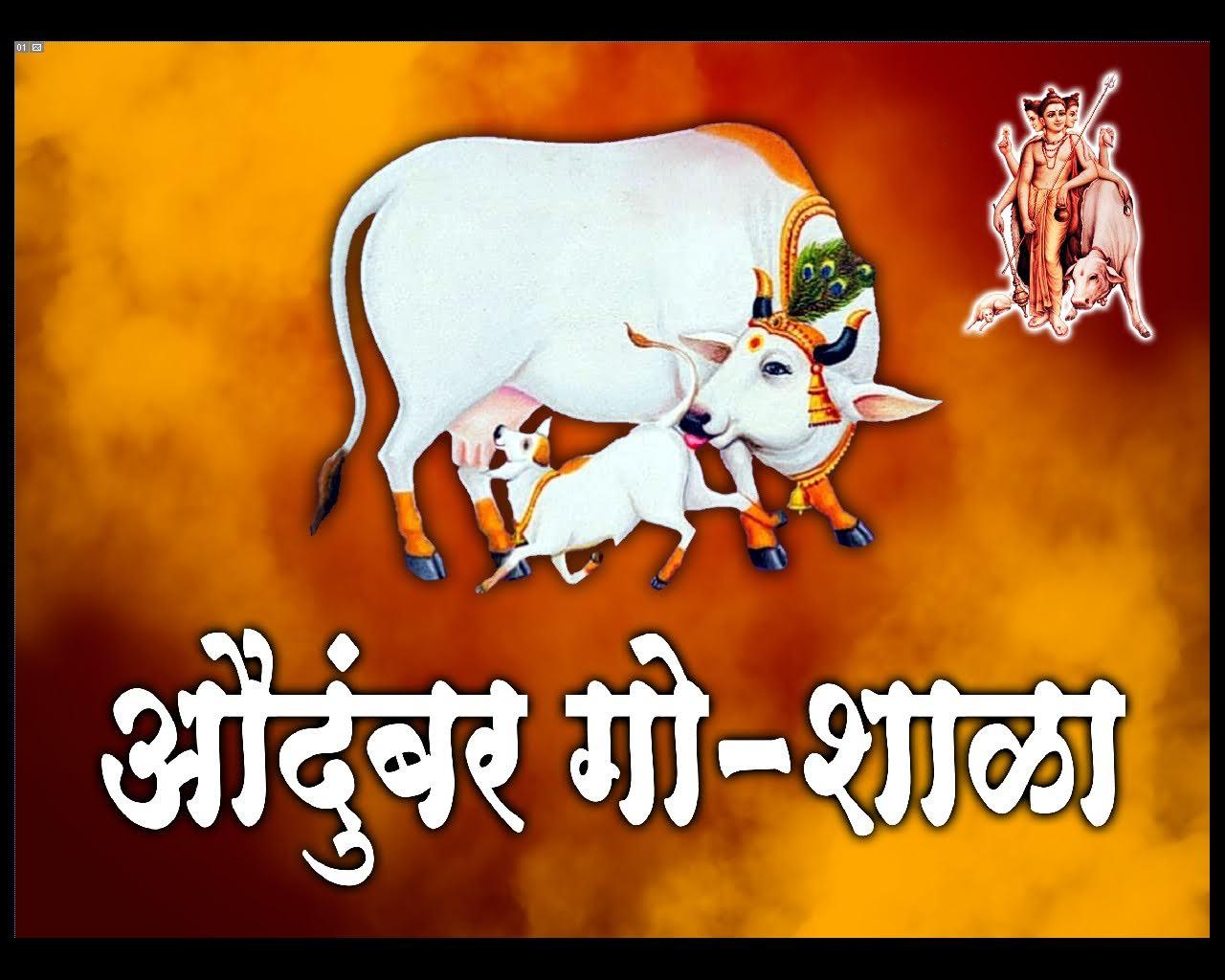3
Is Artificial Milk Healthy? What Vedic Wisdom Teaches Us About Pure Milk
Understanding Risks, Remedies, and Timeless Traditions for Better Well-being
Introduction
The supermarket shelves now offer a wide variety of milk choices—plant-based, synthetic, and formula milks are increasingly popular. But are these alternatives truly safe and beneficial? Let’s delve into the differences between artificial milk and pure milk, examine possible health impacts, and see how age-old Vedic wisdom guides us towards healthier choices—especially for children.
What Is Artificial Milk?
Artificial milk refers to substances designed to mimic the taste, texture, and nutritional profile of traditional milk but made without real animal milk. Common types include:
- Plant-based milks: Like soy, almond, and oat drinks.
- Synthetic milk: Produced through laboratory processes, often using fermentation or blending chemicals.
- Infant formulas: Powdered blends created for feeding babies who do not get breast milk.
Drawbacks & Health Damage from Artificial Milk:
Artificial milks can create health issues:
- Nutritional gaps: Many alternatives lack key nutrients found in real milk, such as optimal levels of calcium, vitamin B12, and certain proteins. Deficiencies over time can affect bone strength and development.
- Digestive troubles: Synthetic blends or plant milks may be harder to digest, leading to bloating or mild irritation.
- Additives and sweeteners: Some brands add sugars or chemicals to improve taste or shelf life, which may contribute to tooth decay, obesity, or allergies.
- Risk for infants: Formula-fed infants may have a higher chance of infections or slower overall development compared to babies nourished by natural milk or breastfeeding.
Remedies: How to Overcome Damage
Better choices and habits can reduce possible harm:
- Choose wisely: When possible, pick pure milk from reliable sources known for quality and safety. Avoid unknown or suspicious products.
- Supplement carefully: If using substitutes, look for brands fortified with vitamins and minerals, but be cautious of added sugars or flavors.
- Prioritize breastfeeding: For infants, breastfeeding offers natural protection and balanced nutrition.
- Regular pediatric check-ups: For children using alternative milks, routine examinations help catch and address any nutritional gaps early.
Vedic Literature: Why Pure Milk Matters
Ancient Indian texts, including the Vedas and Ayurveda, deeply honour cow milk for its purity and holistic benefits. Among the most revered foods, cow milk is called “complete”—a treasure for both body and mind.
According to Vedic wisdom:
- Physical benefits: Pure milk strengthens bones, boosts growth, and enhances immunity. It’s especially vital for children, supporting brain power and stamina.
- Mental clarity and calmness: Milk is considered “sattvic,” meaning it increases clarity, peace, and positive energy in the mind.
- Spiritual significance: Cow milk is associated with nourishment, compassion, and sacred rituals in Vedic tradition, implying it’s not just food but a source of subtle well-being.
Ayurveda even describes the ideal milk as being naturally sweet, energizing, and harmonizing for all ages. Children especially thrive on its wholesome nutrition, which aids their mental and physical development.
Final Takeaway
Artificial milk provides options—but not without compromise. Understanding the hidden health risks empowers us to choose wisely. Pure milk, celebrated for ages in Vedic literature, remains a gold standard for nourishing the body and mind, especially for growing children. When making choices for family health, tradition and science both point to the same path: trust in purity, simplicity, and nature’s own gift.
“Jai Gaumata, Jai Bharat”





